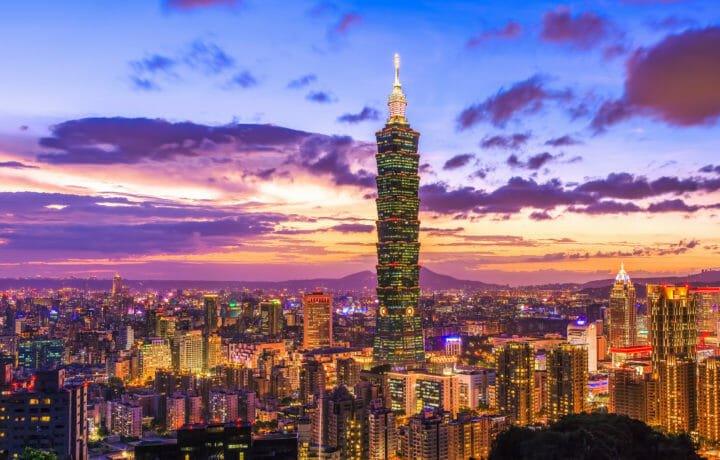China’s economy is in trouble. The housing market is collapsing, youth unemployment is rampant, and western business executives, wary of arbitrary detention and kangaroo courts, are keeping their distance.
On the surface, all of this seems great for democratic Taiwan, which China has repeatedly vowed to “reunify” with the mainland – by force, if necessary – despite the Chinese Communist Party never having ruled there. Yet if history is any guide, China’s apparent domestic distractions may instead hasten an invasion of Taiwan that is believed by most observers to be a few years away.
Impact of the German Economy on WWII
Consider pre-World War II Germany. In the years leading up to the Nazis seizing power in 1933, the German economy was in shambles. The country had yet to fully recover following World War I. Unemployment and inflation were high, and industrial output was low. The Great Depression was a veritable knockout punch for a country already on its heels economically. Then, suddenly, along comes Hitler with a fanatical focus on building up the military and girding for war – and in the process, getting the country working again. We all know the rest.
Russia and Ukraine
More recently, the Russian economy pre-Ukraine is instructive. Already under sanctions for its 2014 incursion into Crimea, which halved the value of the Russian ruble, the Russian economy was limping along under high inflation and a somewhat recovered (although still devalued) ruble just before the invasion of Ukraine.
Most observers believe Vladimir Putin launched the war because he viewed a democratic Ukraine on Russia’s doorstep as an obstacle to his fantasy of resurrecting the Soviet Union; or, if Putin is to be believed, because he viewed a potential Ukrainian accession into NATO (stalled for some 14 years with no sign of movement) as a threat to Russian security. But neither explanation answers the “why now” question, and thus the real answer must lie elsewhere.
Perhaps the real reason is that Putin – the same Putin who poisoned and then imprisoned (and likely killed) the late Alexei Navalny, the one man who could have conceivably led a revolt against him – sensed his population was dissatisfied with economic conditions and their prospects for the future. He needed to jump-start his flagging economy and give his population a reason to rally around him or risk his greatest fear, an internal uprising. He reasoned that a military solution – simultaneously creating a wartime economy and giving a shot in the arm to the national pride – was the most likely solution to both objectives.
Of course, we also know how that has turned out so far. The Russian economy imploded following the invasion and, while it has recovered from its bottom, the flight of capital combined with western sanctions have taken a significant bite. Putin’s silver lining? Polls that show an overwhelming majority of Russian citizens support the Ukraine war despite near-universal international condemnation.
Military Aggression During Economic Challenges
Despite its shortcomings, military aggression has proven a favorite tactic of authoritarian regimes to rally their population, distract from challenging economic conditions, and buoy national pride. Such a solution might prove particularly appealing to Chinese President Xi Jinping – a man who President Biden has called “a dictator” – given the importance in Asian culture of saving face. Xi, his spokespeople, and the bombastic Communist Party-controlled media outlets that constitute news in China have all publicly and repeatedly identified “reunification” as a top priority and a democratic Taiwan an affront to Chinese national pride. Earlier this year, Xi himself committed to the Chinese people that reunification will “surely happen.”
That kind of language is reminiscent of the bizarrely worded manifestos regularly issued by the North Korean government; but to some extent, the North Korean diatribes can be viewed as bluster for the benefit of a population with no alternative source of news or reality. Not so with China. While news sources inside the country are tightly controlled, Chinese citizens, particularly those in the population centers, travel widely and many have relatives living abroad. Therefore, the average Chinese undoubtedly has a much greater sense of the world as it exists than the average North Korean.
If Xi Jinping is telegraphing designs on Taiwan, he’s doing so with the knowledge that, unlike North Korean dictator Kim Jong Un, neither a cult of personality nor an iron fist domestically will be enough to satiate an increasingly restless population. At some point he must make good on his Taiwan threat or appear a paper tiger. Making his move now distracts from domestic economic problems, revs up a wartime economy, and creates a “rally ‘round the flag” dynamic much like in World War II Germany or modern-day Russia. I hope I’m wrong, but I’m betting that Xi plays his hand sooner than the West is predicting.
This article is intended as general information only and should not be construed as legal advice. Although the information is believed to be accurate as of the publication date, no guarantee or warranty is offered or implied. Laws and government policies are subject to change, and the information provided herein may not provide a complete or current analysis of the topic or other pertinent considerations. Consult an attorney regarding your specific situation.




